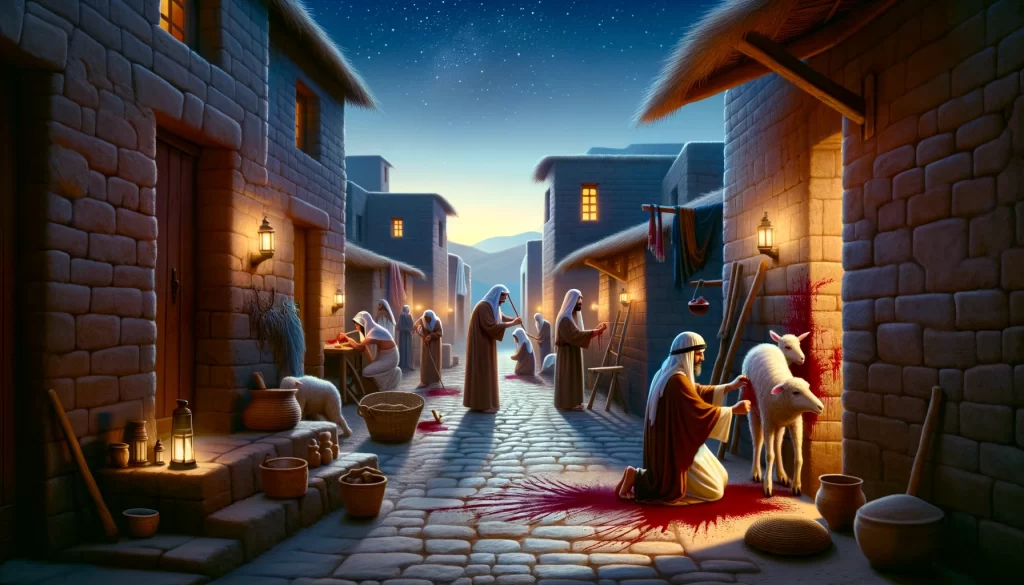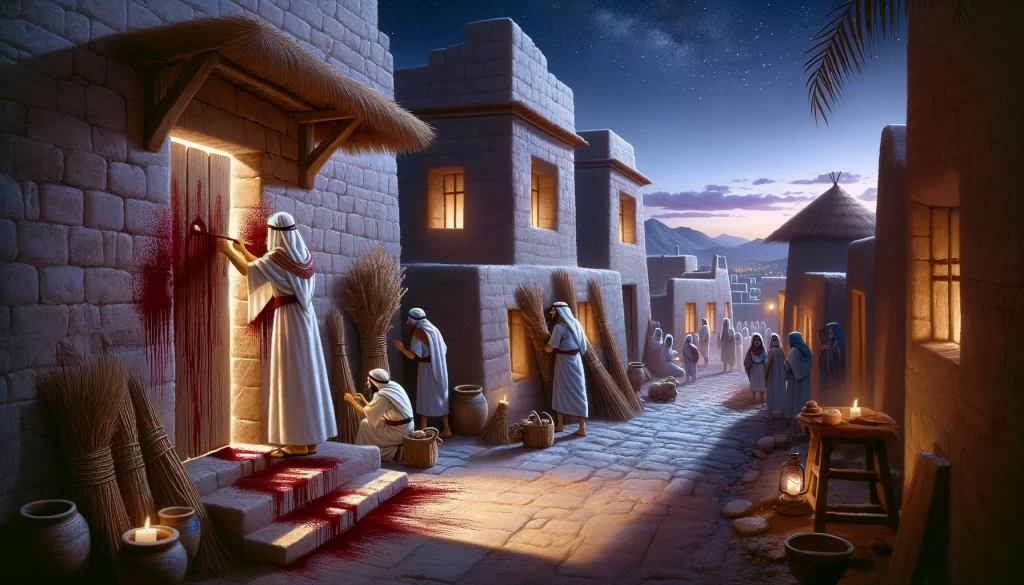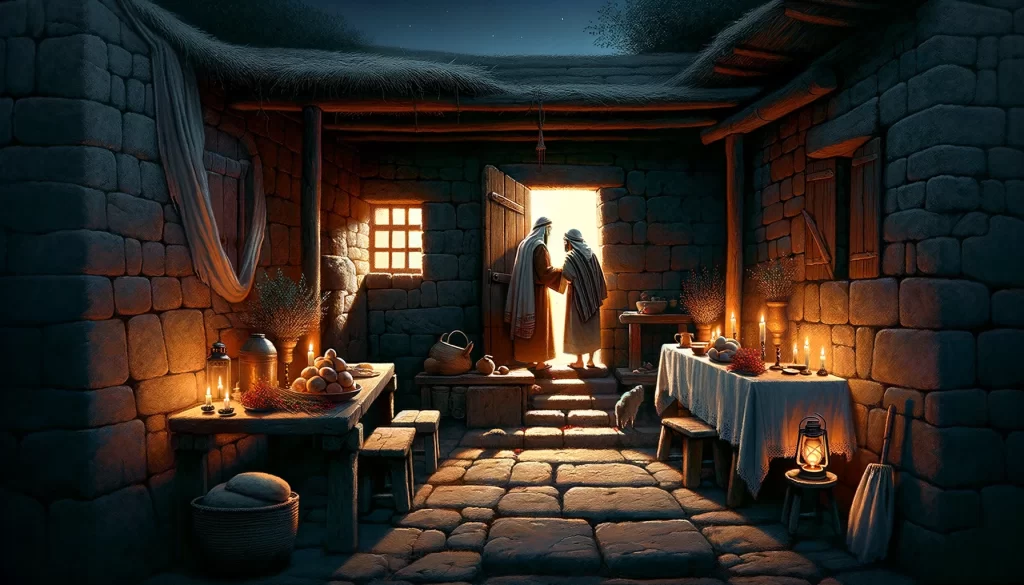Discover the deep and profound symbolism behind one of the most significant religious observances in the Jewish faith – the Passover. Steeped in centuries of tradition, the Passover holds a sacred place in the hearts of millions worldwide. In this enlightening article, we delve into the true meaning and significance behind this ancient commemoration.
From the dramatic story of the Israelites’ liberation from slavery in Egypt to the symbolic foods, rituals, and customs observed during the Seder meal, the Passover is a rich tapestry of history and spiritual meaning. Through a careful examination of the Passover narrative, we will unlock the hidden symbols and metaphors embedded in this age-old tradition.
Discover the powerful symbolism of the Passover lamb, the significance of the unleavened bread, and the timeless themes of freedom and redemption that resonate with people of all faiths. Join us as we uncover the layers of meaning behind this ancient festival and gain a deeper understanding of its relevance in today’s world.
Prepare to embark on a fascinating journey into the heart of the Passover tradition, as we unravel the hidden symbolism and find personal inspiration in its timeless messages.
Historical background of the Passover
The Passover has its roots in the biblical account of the Israelites’ exodus from Egypt. According to the Book of Exodus, the Israelites had been enslaved by the Egyptians for generations. In response to their cries for deliverance, God sent Moses as their leader to confront Pharaoh and demand their freedom. When Pharaoh refused, a series of ten plagues were unleashed upon Egypt, culminating in the final and most devastating plague – the death of every firstborn son.

To protect the Israelites from the wrath of this final plague, God instructed them to sacrifice a lamb and mark their doorposts with its blood. The angel of death would then “pass over” their homes, sparing their firstborn children. This event became known as the Passover, and it marked the beginning of the Israelites’ journey to freedom.
The symbolism of the Passover meal
At the heart of the Passover observance is the Seder meal, a special ceremonial feast that commemorates the Exodus and retells the story of the Israelites’ liberation. The Seder plate, a key element of the meal, is laden with symbolic foods that represent different aspects of the Passover story.

The roasted lamb shank bone, for example, symbolizes the Passover sacrifice made by the Israelites. It serves as a reminder of the lamb whose blood was used to mark the Israelite homes and spare them from the plague of the firstborn. The unleavened bread, known as matzah, is another significant symbol. Its flat and simple form represents the haste with which the Israelites left Egypt, as they did not have time for their bread to rise.
The significance of the Passover in Jewish tradition
The Passover holds immense significance in Jewish tradition. It is not merely a commemoration of a historical event but a deeply meaningful and transformative experience. The festival serves as a reminder of the Jewish people’s journey from slavery to freedom, reinforcing their identity as a nation chosen by God.
The Passover also emphasizes the themes of faith, redemption, and the power of collective memory. It teaches Jews to remember and retell their story from generation to generation, passing down the lessons of liberation and resilience to future descendants. In this way, the Passover becomes a unifying force that strengthens the Jewish people’s bond with their heritage and with one another.
The story of the Exodus and its relevance to the Passover

The story of the Exodus is not just a historical account but a powerful metaphor for the human experience. It resonates with people across cultures and religions, highlighting the universal longing for freedom and the triumph of hope over oppression. The Israelites’ journey from bondage to liberation serves as a timeless reminder that even in the darkest of times, liberation is possible.
The Exodus narrative also underscores the importance of faith and trust in divine providence. It teaches that through faith and obedience, miracles can occur, and seemingly insurmountable obstacles can be overcome. The Passover, therefore, becomes a spiritual journey for individuals, inviting them to reflect on their own personal exodus – their struggles, triumphs, and the role of faith in their lives.
Passover rituals and customs
The Passover is marked by a myriad of rituals and customs that add depth and meaning to the observance. One such ritual is the removal of chametz, which refers to any leavened products. This process involves thoroughly cleaning the home and searching for any remaining traces of chametz before the start of the festival. The removal of chametz symbolizes the removal of spiritual impurity and the pursuit of spiritual renewal.

Another significant custom is the recitation of the Haggadah, a text that guides participants through the Seder meal and retells the story of the Exodus. The Haggadah includes prayers, songs, and blessings, creating a sense of unity and shared purpose among those gathered. The rituals of the Seder meal serve as a powerful reminder of the Israelites’ journey and allow participants to connect with the story on a deeper level.
The spiritual lessons we can learn from the Passover
The Passover offers a wealth of spiritual lessons that extend beyond its historical and cultural significance. First and foremost, it teaches the value of freedom and the inherent worth of every human being. The Israelites’ liberation from slavery serves as a reminder to fight against injustice and oppression in all its forms, both on a personal and societal level.

The Passover also highlights the importance of gratitude and remembrance. It teaches us to be grateful for the blessings in our lives and to remember those who have come before us, paving the way for our freedom. By retelling the story of the Exodus and reliving the experiences of our ancestors, we cultivate a sense of gratitude and a deeper appreciation for the sacrifices that have been made on our behalf.
The Passover in the context of other religious holidays

While the Passover is a central observance in Judaism, it also holds significance in other religious traditions. For Christians, the Passover takes on added significance as it is believed to foreshadow the sacrificial death of Jesus Christ and his subsequent resurrection. The Last Supper, which Jesus shared with his disciples before his crucifixion, is believed to have been a Passover meal.
Modern-day celebrations of the Passover

In modern times, the Passover is celebrated by Jews around the world in various ways. Families gather for the Seder meal, where they retell the story of the Exodus, sing traditional songs, and partake in symbolic foods. The Passover holiday typically